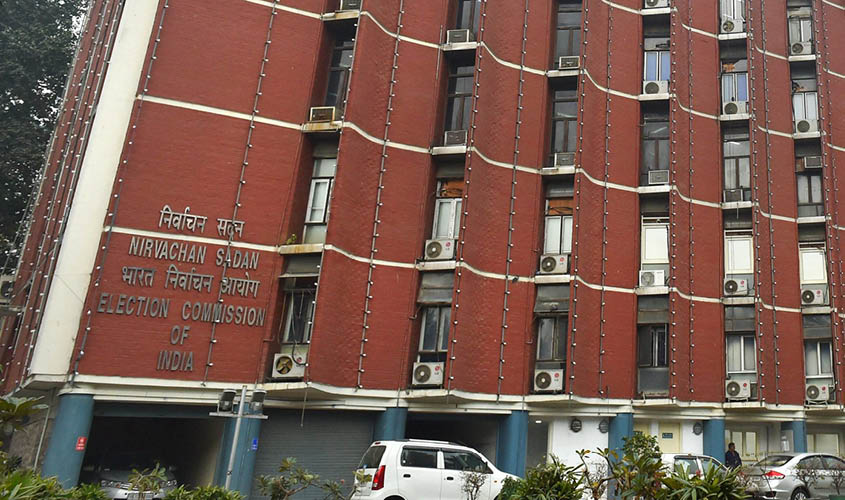New Delhi: The Election Commission of India is likely to announce the dates for this year’s Lok Sabha elections in the first week of March. Assembly elections in four states, Andhra Pradesh, Arunachal Pradesh, Odisha and Sikkim will also be held along with the Lok Sabha elections. With the state-wise review of election preparations coming to an end soon, the stage is set for the general elections, billed as world’s largest democratic exercise, to elect the 17th Lok Sabha.
The ECI has conducted review meetings in most of the states. It has taken a number of steps to ensure free, fair and smooth conduct of elections. While a new voter helpline “1950” is being made operational, a cVIGIL app is also being developed to lodge complaints regarding the violation of model code of conduct. The ECI is in the process of revising and finalising the electoral roll.
India has close to 90 crore eligible voters. The ECI, sources said, is in the process of deciding the number of phases and dates in which the polling would be held. While the term of the 16th Lok Sabha ends on 3 June, the terms of Andhra Pradesh, Arunachal Pradesh, Odisha and Sikkim Assemblies expire on 18 June, 1 June, 11 June and 27 May, respectively.
In the last Lok Sabha elections, there were 81.45 crore eligible voters. The elections were conducted in 10 phases starting from 7 April and concluding on 12 May. More than 93 lakh polling stations were set up for the election process, using electronic voting machines (EVMs), which were first introduced in 2004.
“We are giving special emphasis on making the ‘1950’ helpline number as the ‘first point of care’ for the voter in finding his name in the roll, Election Photo Identity Card (EPIC) status and in connecting to the election machinery. All the state CEOs have been asked to set in place the support systems for this helpline number at the earliest,” said an ECI source.
Chief Election Commissioner Sunil Arora has asked the state CEOs to have their booth level, district level and state level plans ready and to conduct a meticulous assessment of all the resources required for the smooth conduct of elections.
The commission has launched a Voter Verification and Information Programme (VVIP) for citizens for verification of their names, new registrations, changes in details and corrections in voter ID cards. It has also set up contract centres in all districts across India. These centres are equipped with latest information and telecom infrastructure to help the callers.
The cVIGIL app is also being developed which will provide time-stamped, evidence based proof of the model code of conduct/expenditure violation, having live photo/video with auto location data. Anyone can lodge a complaint through the mobile app, which will be investigated by flying squads and returning officers. The status of cVIGIL can be shared with the complainant within a specified time limit.
A “PwD” app has also been launched to enable “persons with disabilities” (PwDs) to request for new registration, change in address, change in particulars and mark themselves as PwD. They can also request for a wheelchair during polling.
The ECI has directed all the state government to transfer officials posted in their home districts and those who have spent three years in a district. In a letter addressed to all state chief secretaries and chief electoral officers, the ECI, however, has made it clear that though a large number of employees would be drafted for election duty, it does not want to carry out large-scale dislocation of the state machinery.
The ECI source said that officials against whom it had recommended disciplinary action in the past in any election would not be assigned any poll-related duty. Also, officers against whom criminal cases were pending in courts were barred from getting election work.
A conference of the chief electoral officers of all the states and Union territories was organised by the ECI recently to review poll preparedness. The meeting focused on the integrity of the electoral staff, meticulous planning for elections, EVM and VVPAT (Voter Verifiable Paper Audit Trail) assessment, besides training and extensive voter outreach. At present, the electoral roll, which is under the process of revision and finalisation, will be used for the general elections.

